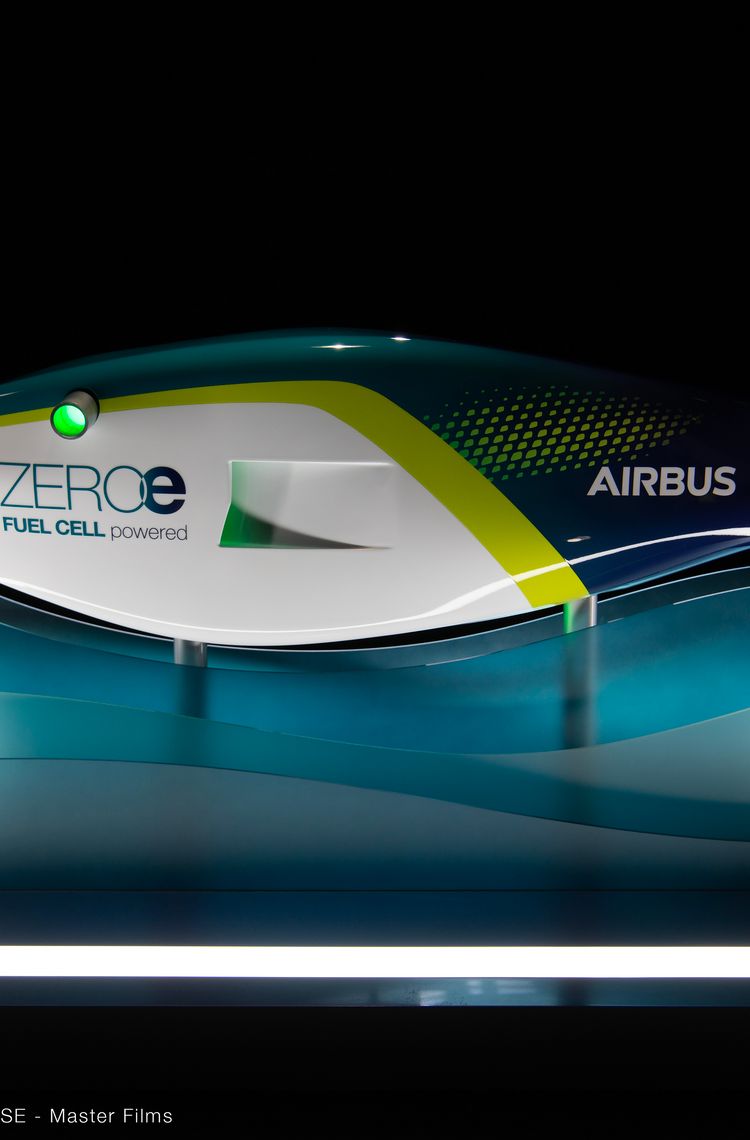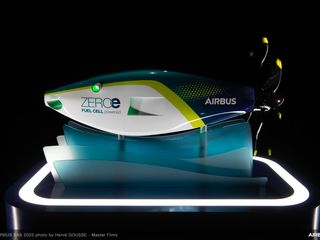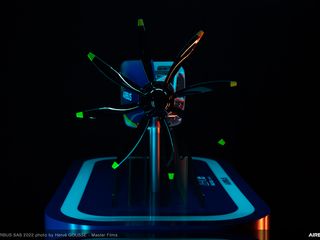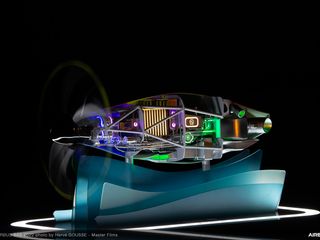Toulouse, 30 November 2022 – Airbus has revealed that it is developing a hydrogen-powered fuel cell engine. The propulsion system is being considered as one of the potential solutions to equip its zero-emission aircraft that will enter service by 2035.
Airbus will start ground and flight testing this fuel cell engine architecture onboard its ZEROe demonstrator aircraft towards the middle of the decade. The A380 MSN1 flight test aircraft for new hydrogen technologies is currently being modified to carry liquid hydrogen tanks and their associated distribution systems.
“Fuel cells are a potential solution to help us achieve our zero-emission ambition and we are focused on developing and testing this technology to understand if it is feasible and viable for a 2035 entry-into-service of a zero-emission aircraft,” said Glenn Llewellyn, VP Zero-Emission Aircraft, Airbus. “At scale, and if the technology targets were achieved, fuel cell engines may be able to power a one hundred passenger aircraft with a range of approximately 1,000 nautical miles. By continuing to invest in this technology we are giving ourselves additional options that will inform our decisions on the architecture of our future ZEROe aircraft, the development of which we intend to launch in the 2027-2028 timeframe.”
Airbus identified hydrogen as one of the most promising alternatives to power a zero-emission aircraft, because it emits no carbon dioxide when generated from renewable energy, with water being its most significant by-products.
There are two ways hydrogen can be used as a power source for aircraft propulsion. First via hydrogen combustion in a gas turbine, second, by using fuel cells to convert hydrogen into electricity in order to power a propeller engine. A hydrogen gas turbine can also be coupled with fuel cells instead of batteries in a hybrid-electric architecture.
Hydrogen fuel cells, especially when stacked together, increase their power output allowing scalability. In addition, an engine powered by hydrogen fuel cells produces zero NOx emissions or contrails thereby offering additional decarbonisation benefits.
Airbus has been exploring the possibilities of fuel cell propulsion systems for aviation for some time. In October 2020, Airbus created Aerostack, a joint venture with ElringKlinger, a company with over 20 years of experience as both a fuel cell systems and component supplier. In December 2020, Airbus presented its pod-concept which included six removable fuel cell propeller propulsion systems.
To find more about Airbus' fuel cell engine and demonstrator, click here.
Click on the following links to find out more about fuel cell technology, and the ZEROe demonstrator.
Your media contacts
Contact us
Lois Benquet
External Communications - Airbus
Latest News
Continue Reading
Airbus and partners launch the next phase of ENGRT
Press Release
Helicopters
Airbus and partners are advancing ENGRT II to ensure European strategic autonomy through a consortium of 12 nations.Airbus and partners launch the next phase of ENGRT
Web Story
Helicopters

Air Canada discloses order for eight Airbus A350-1000s
Press Release
Commercial Aircraft

Essential for survival: The future of military rotorcraft
Web Story
Helicopters

EGYPTAIR takes delivery of its first of 16 Airbus A350-900 aircraft
Press Release
Commercial Aircraft




